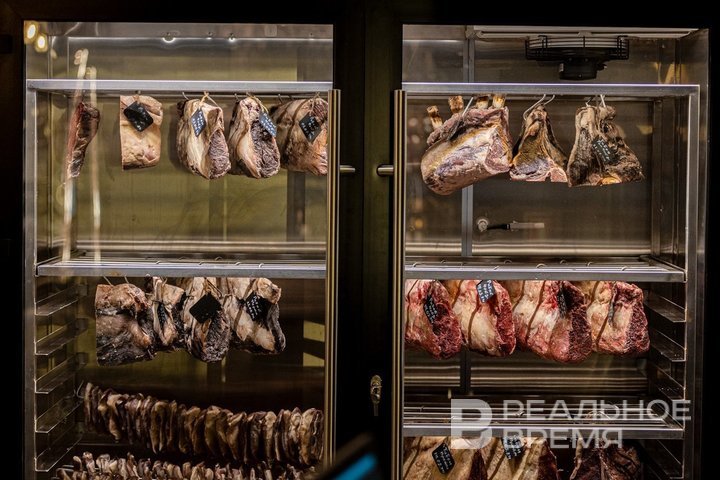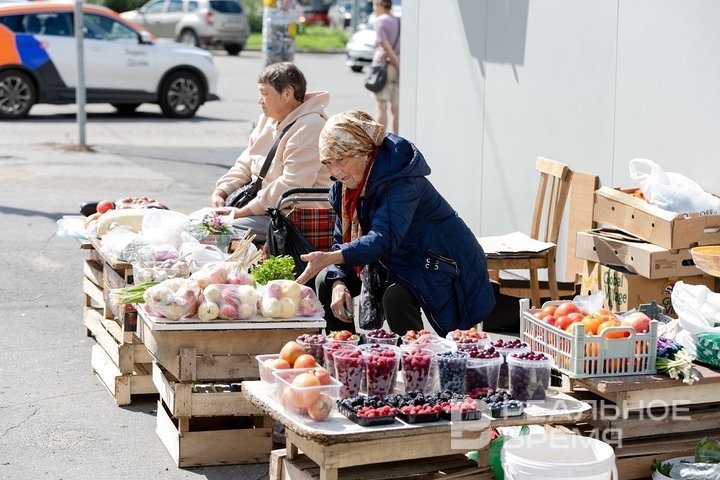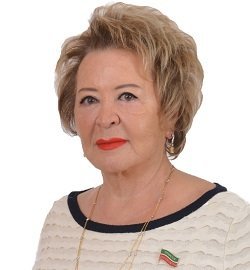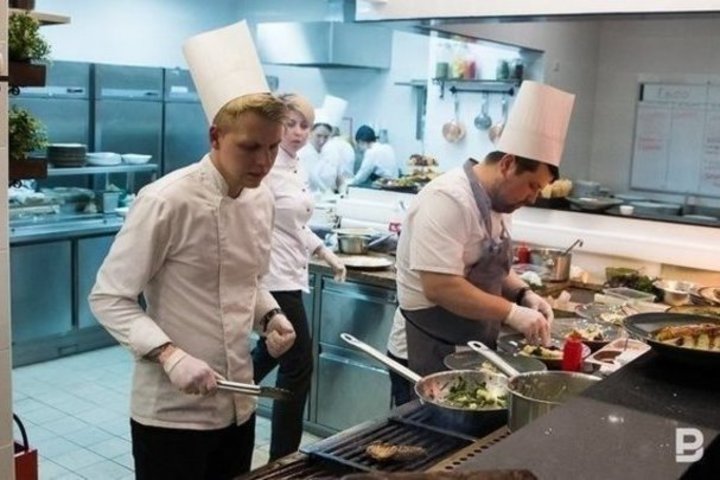Tatarstan calls for regulating the sale of farmers’ products and private farms
Experts consider it necessary to stop the trade in untested food products through messengers and social networks

Tatarstan businessmen are calling for the start of regulating the sale of farmers' products and private farms. In their opinion, the sale of untested food products on social networks and messengers poses a threat to the life and health of consumers, as well as harms the interests of the state, which does not receive taxes from such a shadow business. Bona fide entrepreneurs also suffer, as they do not compete with gray merchants on equal terms. About the prerequisites and consequences of the growth of trade in the so-called “farm chats”, legal and illegal ways to promote goods online and ways to solve the problem — in the material of Realnoe Vremya.
“Elderly ladies are just a cover”
It is necessary to ban advertising and trading of “home-made” food products in messengers and social networks, says Sergey Nikiforov, a Kazan entrepreneur and honoured economist of Russia and Tatarstan.

According to Nikiforov, one of the reasons why such a trade exists and is developing rapidly is the official permission to sell products from private subsidiary farms. However, the expert reminds that meat and milk from animals raised in private households can legally be sold only at markets, provided they pass veterinary inspection beforehand. In addition, the law prohibits the processing of meat and milk by individuals.
“There is currently speculation around the concept of “an old lady with a bundle of dill”, whom bad people deprive of the right to sell this bundle for a little extra income to their pension. Elderly ladies are just a cover, in fact there is a huge black market!

Sergey Nikiforov emphasises that the state appears to exhibit double standards: entrepreneurs are required to meet numerous regulations (which prove costly and impact the production cost and final price of goods) and pay taxes. And nothing from their enterprising competitors who do not register their business. And, most importantly, he believes, the longer this state of affairs persists, the more dangerous the consequences will be — if lawmakers and officials catch themselves and try to close the gap, this will cause serious tension in a society where some earn a living in this way, while others significantly save on purchases.
History repeats itself?
The outrage of a large Tatarstan businessman at “unfair competition” from citizens selling their own products already had loud consequences for the whole of Russia. In April 2018, Muslima Latypova, the owner of Bakhetle, accused women on maternity leave, saying that these “unscrupulous competitors and pseudo-entrepreneurs” were taking volumes from the retail chain:

On November 27, 2018, the law on the self-employed was adopted in Russia — “On conducting an experiment to establish the special tax regime “Tax on professional income”, and on January 1, 2019, a pilot project was launched in four regions, including Tatarstan — Muslim Latypova's “competitors” began paying tax on their income.
But legislators did not forbid women on maternity leave to bake cakes for sale in their kitchens.
“It's beneficial to them!”
“We sell smoked ducks, geese, smoked fish — we bring everything from the village," Adelina, who runs a home-made food trade in a messenger group, told Realnoe Vremya. “I do not have documents for these products, but the suppliers are verified, and many customers have been buying from me for about three years now — there have been no complaints about quality or poisoning during this time.”
The woman does not trade as a private individual, but as self-employed, although the law does not prohibit citizens in this status from reselling. The prices for smoked meats are much lower than in stores, and the products sell out instantly. Moreover, Adeline says that stores purchase these products from her and later put them on shelves, already with a markup. When she heard the question of how retail outlets take on the sale of products without documents, the woman thought a little, and then suggested:
“They do some kind of paperwork, probably. It is beneficial to them, they buy, for example, geese from me for 1,200 rubles and sell for 1,400.”
Zulfat, who sells homemade sausages, kolbasa, and kazylik through a messenger app, also lacked the necessary documentation for his products. When asked by Realnoe Vremya, the man replied that he only had a “meat certificate from Mercury”.
Why the store moved to social networks
As it turned out, individual entrepreneurs also “trade” in messengers, in addition to the “classic” trade through the store. For example, Khadiullina individual entrepreneur has a shop on Gudovantseva Street, but she accepts orders for a variety of products in the messenger, from meat and semi-finished products to pastries.
“I don't have any clients who would ask for documents for products, word of mouth works, apparently," the entrepreneur told Realnoe Vremya. “A person who bought something from us usually advises his friends and relatives afterwards. I’ve been working for so many years, and there have never been any complaints about quality, not even a question. Although Rospotrebnadzor checked us, and there were no problems.”

Aygul's store has been operating since 2006, but it was launched on messengers and social networks only two years ago. The main advantage of this is the growth of orders, and if the stores did not cover the whole of Kazan, now the entrepreneur delivers orders throughout the city. According to her, the business went up sharply. She pays taxes, the woman says, but not from turnover, but from a fixed amount established by law.
Rospotrebnadzor warns
“In order to avoid food poisoning, mass infectious and non-communicable diseases, the Department of Rospotrebnadzor in the Republic of Tatarstan recommends buying only industrial products in stationary places of sale," the republican department of Rospotrebnadzor reported in response to a request from Realnoe Vremya about quality guarantees of products sold through messengers. “The production of food products for sale to the public is allowed only in industrial premises. Special requirements are imposed on premises, personnel, raw materials and products for food production.”

Rospotrebnadzor also warned that semi-finished products and foods made at home may be produced not under the best conditions: it is unclear whether the producer has a separate refrigerator, a separate table, and washing tub, whether they carefully monitor the cleanliness of work surfaces and disinfect them regularly, whether they work while observing basic personal hygiene requirements (wearing a head covering, gloves, and washing hands after using the toilet), whether the family members are healthy, and whether there are pets in the house, and so on.
“In addition, for example, food coloring and additives are used in the manufacture of cakes, which can be the strongest allergens," the department stressed. “There are no labels for 'homemade' cakes, their composition is unknown. And if you treat a guest with allergies with such a cake, he may have an exacerbation of the disease.”
Rospotrebnadzor also advised paying attention to the integrity and airtightness of the packaging when purchasing food through messengers, and for frozen products, checking for signs of re-freezing, freezer burn, deformation, or the presence of a “snowy coat”. In case of any doubts about the quality and safety of the selected products, it was recommended to refrain from buying.
Can word of mouth be banned?
Coronavirus isolation has given a rapid impetus to the development of trade through social networks and messengers. After trying this type of sales, manufacturers and resellers got a taste for it.

The experts of Roskachestvo portal recommend that potential buyers be wary of invitations to click on unfamiliar attractive links so as not to run into scammers. However, in the case of food sales, the links are requested by the customers themselves — from those who already belong to groups where homemade food is offered at attractive prices. Word of mouth is the best advertisement.
Realnoe Vremya asked the Tatarstan Federal Antimonopoly Service of Russia how realistic it is to implement Sergey Nikiforov's proposal to ban advertising of such trade. Upon receipt, the response will be published.